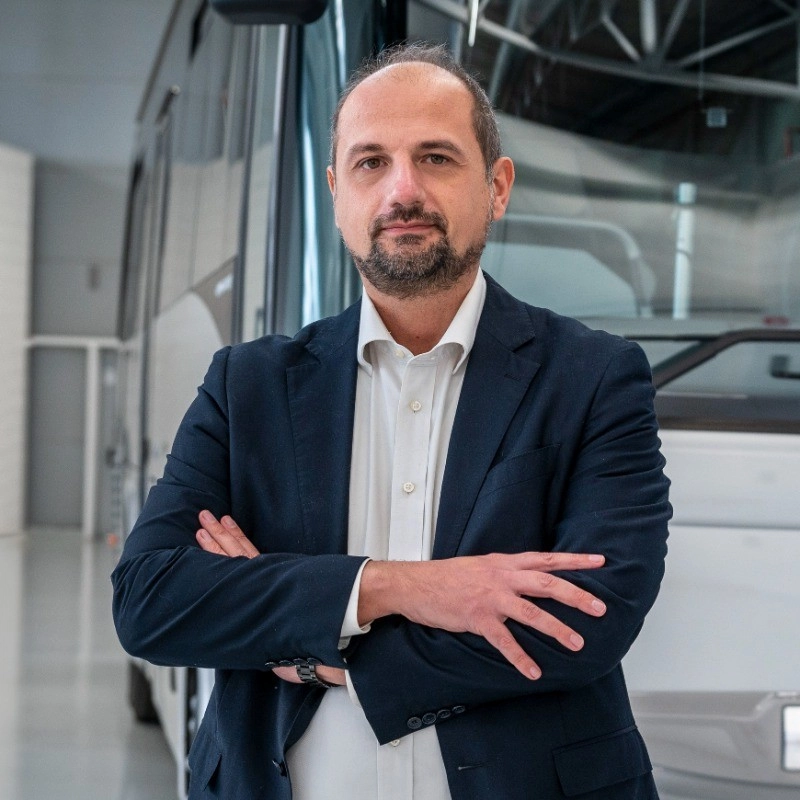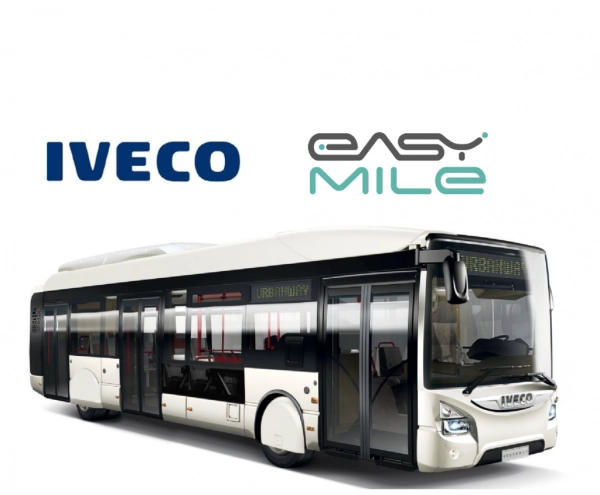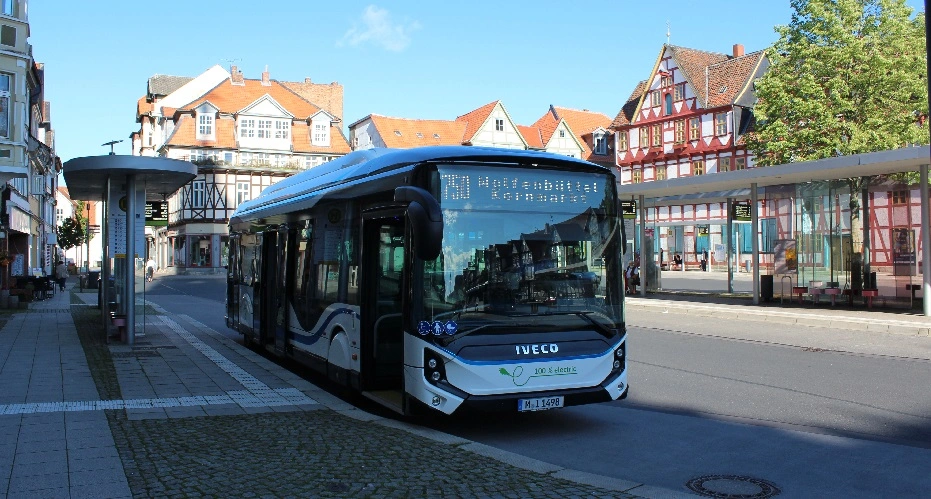IVECO BUS, a company dedicated to designing, manufacturing, and selling vehicles and services, aims to make its entire bus lineup autonomous in the future.
“Innovation is one of the characteristics of our DNA as a brand,” acknowledges Marco Franza, Global Head of Customer Service at IVECO BUS, during a Sustainable Bus webinar.
“The long-term goal is really autonomous driving,” he asserts.
However, he acknowledges that growth in this direction presents certain challenges.
“It’s complicated for various reasons, not only technological but also economic or related to the total cost of ownership of the city around these solutions, as well as legislative terms,” explains Franza.

In this regard, he recognizes that all three aspects “must work together.”
Regarding regulatory aspects, the Society of Automotive Engineers (SAE) defines six levels of driving automation, ranging from level zero (completely manual) to level five (fully autonomous).
Since its initial release in 2014, these rules have been the most cited source in the industry for driverless units.
“We believe that achieving level five is not something that can fully materialize,” admits the Global Head of Customer Service.
Another challenge of automated driving is adapting the unit and service to users.
“One of the big challenges will be the flexibility of transportation in terms of how to make it available to users, adapting the vehicle to the specific moment and task,” indicates the representative.
Furthermore, Franza emphasizes that mobility “is a service” and highlights that IVECO BUS is working in that direction.
Regarding this ambition, the representative states that another goal of the company is to make vehicles accessible to all citizens.
“We want to understand how to grant the possibility of accessing transportation to people with different needs and be effective,” he explains.
With these goals to achieve and obstacles to overcome, IVECO BUS seeks to rethink itself every day to maintain its status as a benchmark in the region.
As a final point of interest, Franza mentions the “connectivity.”
In this regard, Franza wonders how to explore and expand the opportunities behind the fact that, in a short time, the bus experience could be completely different from the current situation.
“We can connect, exchange, and have an experience during the journey that truly makes public transport an effective solution and alternative to other forms of mobility,” he concludes.
As an example, Franza mentions one of IVECO BUS’s projects.
Released in 2017, the STAR project (Rapid Autonomous Transportation System) had the goal of developing the first standard automated and driverless bus capable of operating in conditions similar to real-world scenarios.
“During the STAR project, we worked with the University of Lyon to understand the impact of passengers when using autonomous public transport,” he says.
“We found that it was good to have more screens inside the units that allow customers to interact if needed so that they have feedback,” clarifies the Global Head of Customer Service.
The bus has proven to be feasible for automated operations in Bus Rapid Transit (BRT) lanes as well as private centers, marking a crucial milestone in the progress of driverless units in Europe.
The unit has a length of 12 meters and can comfortably and safely transport up to 100 passengers.
Regarding integrated technologies, it includes safety controls and navigation software.

The vehicle, developed jointly by EasyMile and IVECO BUS, has undergone extensive testing and development at the Transpolis test grounds, as well as on the testing sites of both companies.
It has been driven in different seasons and weather conditions, achieving its maximum performance at this stage.
Finally, Franza mentions that, for this technology to continue advancing, it will be necessary to make infrastructure modifications in cities.
“The bus stop must be redesigned and rethought because eventually it will cease to be fixed and will become mobile,” he indicates.
What’s new with IVECO BUS?
Their commitment to sustainable mobility is essential for the Italian firm.
IVECO BUS materializes these intentions through the sale of EVs worldwide.
Recently, the company reached an agreement with QBUZZ regarding their public transport operations in the Zuid-Holland Noord area, in the Netherlands.
The Dutch company, which already has 80 units in circulation in the country since 2019, expands its green fleet and adds 140 more units from December 2024.
“These new generations electric solutions will provide comfortable and emission-free journeys for more passengers and thus help to pursue the mission of a cleaner and sustainable future”, expresses Giorgio Zino, Head of IVECO BUS business operations in Europe.
Read more: NeXT: What benefits does the “shortest” autonomous bus in the market offer?







